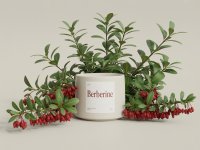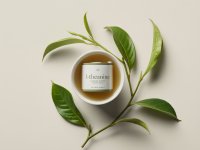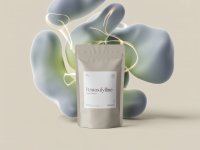
cranberry
Cranberry (Vaccinium macrocarpon) is a fruit native to Eastern North America and also found in Northern Europe, with Native Americans traditionally using it for bladder and kidney ailments for centuries. It works primarily through compounds like proanthocyanidins that prevent bacteria from adhering to tissues, especially in the urinary tract, and also offers antioxidant and anti-inflammatory effects. Studies show strong evidence for cranberry's role in preventing urinary tract infections, and emerging research suggests benefits for cognitive function, cardiovascular health, and neuroprotection.
Table of Contents
Categories & Effectiveness
Brain Health
Brain Circulation Boost
7/10Strong evidence of effectiveness
Brain Antioxidant Shield
4/10Moderate evidence of effectiveness
Synaptic Plasticity
2/10Limited evidence of effectiveness
Cognition
Memory & Recall
4/10Moderate evidence of effectiveness
Systemic Health
Blood Pressure Regulation
7/10Strong evidence of effectiveness
Systemic Antioxidant
7/10Strong evidence of effectiveness
Vascular Health
7/10Strong evidence of effectiveness
Cellular Anti-Aging
2/10Limited evidence of effectiveness
Dosage & Side Effects
Recommended Dosage
Potential Side Effects
Bioavailability & Half-Life
Interactions & Stacks
Benefits by Use Case
Urinary Tract Infection (UTI) Prevention
Helps prevent UTIs by inhibiting bacterial adherence to urinary tract walls. Consistent daily intake is generally needed for this protective effect.
Antioxidant Support
Provides significant antioxidant activity, helping to neutralize free radicals and reduce oxidative stress throughout the body. Benefits are general and contribute to overall cellular health.
Cognitive Improvement in Older Adults
May improve episodic memory and regional brain perfusion with chronic consumption (e.g., 12 weeks). Effects are more studied in older populations and may not be as pronounced in younger, healthy individuals.
Cardiovascular Health Support
May contribute to reduced systolic blood pressure and body mass index, and potentially increase HDL cholesterol in younger adults. These effects are part of a broader healthy lifestyle and diet.
Neuroprotection
Its compounds like anthocyanins and ellagic acid show potential in modulating signaling pathways linked to neurodegeneration and protecting neurons. Much of this evidence is from preclinical studies or reviews, with more human trials needed.




